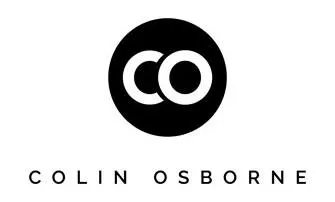
Colin Osborne
Digital Marketing | Automation
Colin is an exceptional individual who possesses a wealth of knowledge and expertise in the realm of marketing. He has been instrumental in guiding people to develop effective marketing processes that not only generate value but also enhance their overall business growth.
Categories
Business
Finance
Graphic Design
Websites
Marketing
Project Management
Social Media
Client Relationship Management

10 Secrets to Skyrocket Your SEO Rankings Today!
Introduction
Are you struggling to improve your website's search engine rankings? Do you want to attract more organic traffic and increase your online visibility? Look no further! In this article, we will reveal the 10 secrets that will skyrocket your SEO rankings today. These proven strategies and techniques will help you optimize your website, attract more visitors, and climb to the top of search engine results pages (SERPs). So, let's dive in and unlock the true potential of SEO!
Understanding the Importance of SEO
In today's digital landscape, having a strong online presence is essential for businesses to succeed. Search Engine Optimization (SEO) plays a pivotal role in driving organic traffic to your website and ensuring that your target audience finds you effortlessly. By implementing effective SEO strategies, you can improve your website's visibility, attract high-quality leads, and boost your conversion rates. So, let's explore the ten secrets that will help you skyrocket your SEO rankings and reach new heights of success!
Performing Comprehensive Keyword Research
One of the fundamental pillars of successful SEO is comprehensive keyword research. Keywords are the building blocks that connect your website to the users' search queries. By identifying the right keywords and optimizing your content around them, you can increase your website's visibility and attract relevant traffic. Tools like Google Keyword Planner and Moz Keyword Explorer can assist you in finding the most relevant and high-volume keywords for your niche. Remember to focus on long-tail keywords that have lower competition but higher conversion potential.
Creating High-Quality and Engaging Content
Content is the backbone of SEO. To captivate your audience and please search engine algorithms, you must create high-quality and engaging content that provides value. Your content should be informative, well-researched, and relevant to your target audience's needs. Aim to become an authority in your industry by offering unique insights, expert opinions, and actionable tips. Don't forget to incorporate your target keywords naturally within the content, ensuring a seamless reading experience for your users.
Optimizing On-Page Elements
Optimizing your website's on-page elements is a critical step in improving your SEO rankings. Pay attention to your page titles, meta descriptions, headers, and URL structures. These elements should be optimized with relevant keywords and provide concise and compelling information about the page's content. Use header tags (H1, H2, H3, etc.) to structure your content and make it more readable for both users and search engines. Additionally, utilize schema markup to provide rich snippets that enhance your website's visibility in search results.
Building a Strong Backlink Profile
Backlinks continue to be a vital ranking factor in SEO. Search engines consider backlinks as a vote of confidence and authority from other websites. The more high-quality and relevant backlinks you have, the more trustworthy and valuable your website appears in the eyes of search engines. Focus on acquiring backlinks from authoritative websites in your industry. You can reach out to influencers, collaborate on guest posts, or create exceptional content that others naturally want to link to. Tools like Ahrefs and Majestic can help you analyze your backlink profile and identify opportunities for improvement.
Harnessing the Power of Social Media
Social media platforms have become a dominant force in today's digital landscape. They offer a tremendous opportunity to boost your SEO rankings and drive traffic to your website. By building a strong social media presence, sharing your content, and engaging with your audience, you can increase brand awareness, attract backlinks, and enhance your website's authority. Additionally, social signals, such as likes, shares, and comments, can indirectly impact your SEO rankings. So, don't underestimate the power of social media in your SEO strategy.
Improving User Experience and Website Performance
User experience (UX) and website performance are critical factors that influence your SEO rankings. Search engines strive to provide the best possible results for their users, and they prioritize websites that offer seamless navigation, fast loading times, and mobile-friendliness. Optimize your website's design and layout to ensure intuitive user experience. Compress images, enable browser caching, and minimize server response time to improve your website's loading speed. Responsive design is also crucial, as more users are accessing the internet via mobile devices.
Leveraging Local SEO
For businesses targeting a specific geographic location, local SEO is a game-changer. Local SEO strategies help you rank higher in location-based search results and attract customers who are actively searching for your products or services in your area. To optimize your website for local SEO, claim and optimize your Google My Business listing, include local keywords in your content, and encourage customer reviews. NAP (Name, Address, Phone number) consistency across various online directories is also essential. Tools like Yext can help you manage your online listings and ensure accurate information.
Staying Ahead with Mobile Optimization
In today's mobile-dominated world, optimizing your website for mobile devices is no longer an option; it's a necessity. Mobile optimization plays a crucial role in your SEO rankings, as search engines prioritize websites that provide a seamless mobile experience. Make sure your website is responsive, loads quickly on mobile devices, and offers a user-friendly interface. Conduct mobile testing to identify and fix any usability issues that may hinder your mobile users' experience. Google's Mobile-Friendly Test can provide insights and recommendations for mobile optimization.
Monitoring, Analyzing, and Adapting
SEO is not a one-time task; it requires constant monitoring, analysis, and adaptation. Regularly monitor your website's performance, track your keyword rankings, and analyze user behavior using tools like Google Analytics and Google Search Console. These tools provide valuable data and insights that help you identify areas for improvement and track the success of your SEO efforts. Stay updated with the latest SEO trends and algorithm changes to ensure your strategies remain effective and aligned with best practices.
Frequently Asked Questions
1. What is SEO, and why is it important?
SEO stands for Search Engine Optimization. It is the practice of optimizing your website to increase its visibility in search engine results pages (SERPs). SEO is important because it helps you attract organic traffic, reach your target audience, and improve your online presence and brand authority.
2. How long does it take to see SEO results?
The time it takes to see SEO results can vary depending on various factors, such as your website's age, competition level, and the quality of your SEO efforts. Generally, it takes several months to start seeing significant improvements in your rankings and organic traffic. SEO is a long-term strategy that requires patience and consistent effort.
3. Are backlinks still important for SEO?
Yes, backlinks remain an essential ranking factor in SEO. High-quality backlinks from authoritative websites signal to search engines that your website is trustworthy and valuable. However, it's crucial to focus on acquiring natural and relevant backlinks rather than resorting to spammy or manipulative tactics.
4. Can social media impact SEO rankings?
While social media signals do not have a direct impact on SEO rankings, they can indirectly influence your rankings. A strong social media presence can increase brand awareness, drive traffic to your website, and attract backlinks from influential websites, all of which can positively impact your SEO efforts.
5. Is mobile optimization crucial for SEO?
Yes, mobile optimization is crucial for SEO. With the increasing use of mobile devices, search engines prioritize websites that offer a seamless mobile experience. Failure to optimize your website for mobile can result in lower rankings and a poor user experience, ultimately impacting your organic traffic and conversions.
6. What tools can help with SEO analysis?
There are several tools available to assist with SEO analysis and optimization. Some popular ones include Google Analytics, Google Search Console, Ahrefs, Moz, SEMrush, and Majestic. These tools provide valuable insights into your website's performance, keyword rankings, backlink profile, and more.
Conclusion
Achieving top rankings in search engine results is a highly competitive endeavor. However, by implementing the 10 secrets we've explored in this article, you can skyrocket your SEO rankings and outperform your competitors. Remember to focus on comprehensive keyword research, create high-quality content, optimize on-page elements, build a strong backlink profile, leverage social media, enhance user experience, embrace local SEO, prioritize mobile optimization, and continuously monitor and adapt your SEO strategies. Now it's time to apply these secrets, boost your SEO rankings, and witness the transformation of your online presence!

Colin Osborne
Digital Marketing | Automation
Colin is an exceptional individual who possesses a wealth of knowledge and expertise in the realm of marketing. He has been instrumental in guiding people to develop effective marketing processes that not only generate value but also enhance their overall business growth.

10 Secrets to Skyrocket Your SEO Rankings Today!
Introduction
Are you struggling to improve your website's search engine rankings? Do you want to attract more organic traffic and increase your online visibility? Look no further! In this article, we will reveal the 10 secrets that will skyrocket your SEO rankings today. These proven strategies and techniques will help you optimize your website, attract more visitors, and climb to the top of search engine results pages (SERPs). So, let's dive in and unlock the true potential of SEO!
Understanding the Importance of SEO
In today's digital landscape, having a strong online presence is essential for businesses to succeed. Search Engine Optimization (SEO) plays a pivotal role in driving organic traffic to your website and ensuring that your target audience finds you effortlessly. By implementing effective SEO strategies, you can improve your website's visibility, attract high-quality leads, and boost your conversion rates. So, let's explore the ten secrets that will help you skyrocket your SEO rankings and reach new heights of success!
Performing Comprehensive Keyword Research
One of the fundamental pillars of successful SEO is comprehensive keyword research. Keywords are the building blocks that connect your website to the users' search queries. By identifying the right keywords and optimizing your content around them, you can increase your website's visibility and attract relevant traffic. Tools like Google Keyword Planner and Moz Keyword Explorer can assist you in finding the most relevant and high-volume keywords for your niche. Remember to focus on long-tail keywords that have lower competition but higher conversion potential.
Creating High-Quality and Engaging Content
Content is the backbone of SEO. To captivate your audience and please search engine algorithms, you must create high-quality and engaging content that provides value. Your content should be informative, well-researched, and relevant to your target audience's needs. Aim to become an authority in your industry by offering unique insights, expert opinions, and actionable tips. Don't forget to incorporate your target keywords naturally within the content, ensuring a seamless reading experience for your users.
Optimizing On-Page Elements
Optimizing your website's on-page elements is a critical step in improving your SEO rankings. Pay attention to your page titles, meta descriptions, headers, and URL structures. These elements should be optimized with relevant keywords and provide concise and compelling information about the page's content. Use header tags (H1, H2, H3, etc.) to structure your content and make it more readable for both users and search engines. Additionally, utilize schema markup to provide rich snippets that enhance your website's visibility in search results.
Building a Strong Backlink Profile
Backlinks continue to be a vital ranking factor in SEO. Search engines consider backlinks as a vote of confidence and authority from other websites. The more high-quality and relevant backlinks you have, the more trustworthy and valuable your website appears in the eyes of search engines. Focus on acquiring backlinks from authoritative websites in your industry. You can reach out to influencers, collaborate on guest posts, or create exceptional content that others naturally want to link to. Tools like Ahrefs and Majestic can help you analyze your backlink profile and identify opportunities for improvement.
Harnessing the Power of Social Media
Social media platforms have become a dominant force in today's digital landscape. They offer a tremendous opportunity to boost your SEO rankings and drive traffic to your website. By building a strong social media presence, sharing your content, and engaging with your audience, you can increase brand awareness, attract backlinks, and enhance your website's authority. Additionally, social signals, such as likes, shares, and comments, can indirectly impact your SEO rankings. So, don't underestimate the power of social media in your SEO strategy.
Improving User Experience and Website Performance
User experience (UX) and website performance are critical factors that influence your SEO rankings. Search engines strive to provide the best possible results for their users, and they prioritize websites that offer seamless navigation, fast loading times, and mobile-friendliness. Optimize your website's design and layout to ensure intuitive user experience. Compress images, enable browser caching, and minimize server response time to improve your website's loading speed. Responsive design is also crucial, as more users are accessing the internet via mobile devices.
Leveraging Local SEO
For businesses targeting a specific geographic location, local SEO is a game-changer. Local SEO strategies help you rank higher in location-based search results and attract customers who are actively searching for your products or services in your area. To optimize your website for local SEO, claim and optimize your Google My Business listing, include local keywords in your content, and encourage customer reviews. NAP (Name, Address, Phone number) consistency across various online directories is also essential. Tools like Yext can help you manage your online listings and ensure accurate information.
Staying Ahead with Mobile Optimization
In today's mobile-dominated world, optimizing your website for mobile devices is no longer an option; it's a necessity. Mobile optimization plays a crucial role in your SEO rankings, as search engines prioritize websites that provide a seamless mobile experience. Make sure your website is responsive, loads quickly on mobile devices, and offers a user-friendly interface. Conduct mobile testing to identify and fix any usability issues that may hinder your mobile users' experience. Google's Mobile-Friendly Test can provide insights and recommendations for mobile optimization.
Monitoring, Analyzing, and Adapting
SEO is not a one-time task; it requires constant monitoring, analysis, and adaptation. Regularly monitor your website's performance, track your keyword rankings, and analyze user behavior using tools like Google Analytics and Google Search Console. These tools provide valuable data and insights that help you identify areas for improvement and track the success of your SEO efforts. Stay updated with the latest SEO trends and algorithm changes to ensure your strategies remain effective and aligned with best practices.
Frequently Asked Questions
1. What is SEO, and why is it important?
SEO stands for Search Engine Optimization. It is the practice of optimizing your website to increase its visibility in search engine results pages (SERPs). SEO is important because it helps you attract organic traffic, reach your target audience, and improve your online presence and brand authority.
2. How long does it take to see SEO results?
The time it takes to see SEO results can vary depending on various factors, such as your website's age, competition level, and the quality of your SEO efforts. Generally, it takes several months to start seeing significant improvements in your rankings and organic traffic. SEO is a long-term strategy that requires patience and consistent effort.
3. Are backlinks still important for SEO?
Yes, backlinks remain an essential ranking factor in SEO. High-quality backlinks from authoritative websites signal to search engines that your website is trustworthy and valuable. However, it's crucial to focus on acquiring natural and relevant backlinks rather than resorting to spammy or manipulative tactics.
4. Can social media impact SEO rankings?
While social media signals do not have a direct impact on SEO rankings, they can indirectly influence your rankings. A strong social media presence can increase brand awareness, drive traffic to your website, and attract backlinks from influential websites, all of which can positively impact your SEO efforts.
5. Is mobile optimization crucial for SEO?
Yes, mobile optimization is crucial for SEO. With the increasing use of mobile devices, search engines prioritize websites that offer a seamless mobile experience. Failure to optimize your website for mobile can result in lower rankings and a poor user experience, ultimately impacting your organic traffic and conversions.
6. What tools can help with SEO analysis?
There are several tools available to assist with SEO analysis and optimization. Some popular ones include Google Analytics, Google Search Console, Ahrefs, Moz, SEMrush, and Majestic. These tools provide valuable insights into your website's performance, keyword rankings, backlink profile, and more.
Conclusion
Achieving top rankings in search engine results is a highly competitive endeavor. However, by implementing the 10 secrets we've explored in this article, you can skyrocket your SEO rankings and outperform your competitors. Remember to focus on comprehensive keyword research, create high-quality content, optimize on-page elements, build a strong backlink profile, leverage social media, enhance user experience, embrace local SEO, prioritize mobile optimization, and continuously monitor and adapt your SEO strategies. Now it's time to apply these secrets, boost your SEO rankings, and witness the transformation of your online presence!






